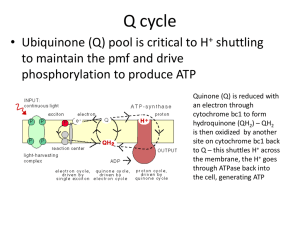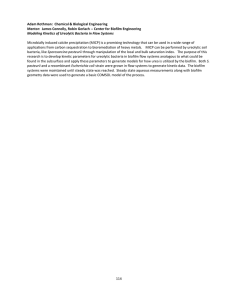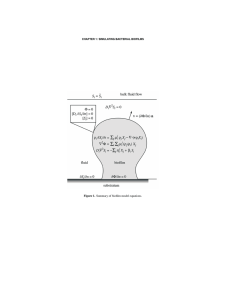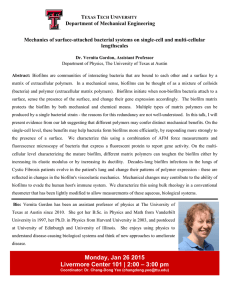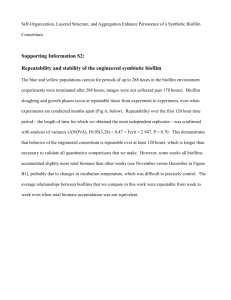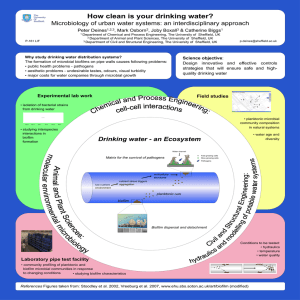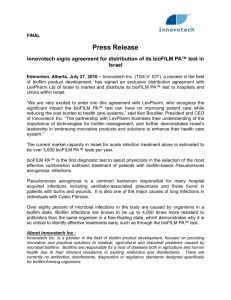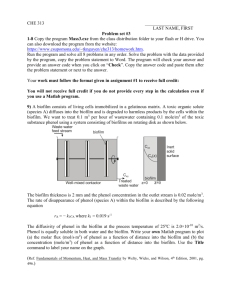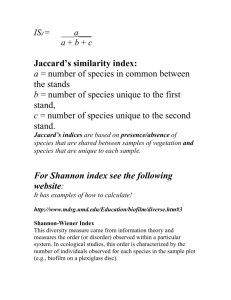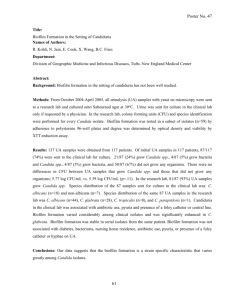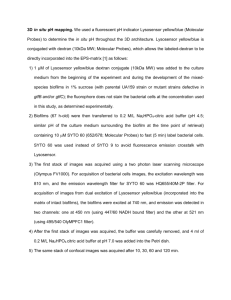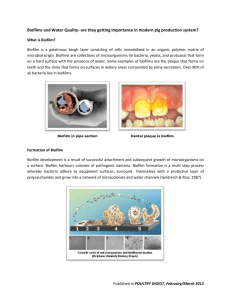Micro-scale numerical models for biofilm formation in porous media
advertisement
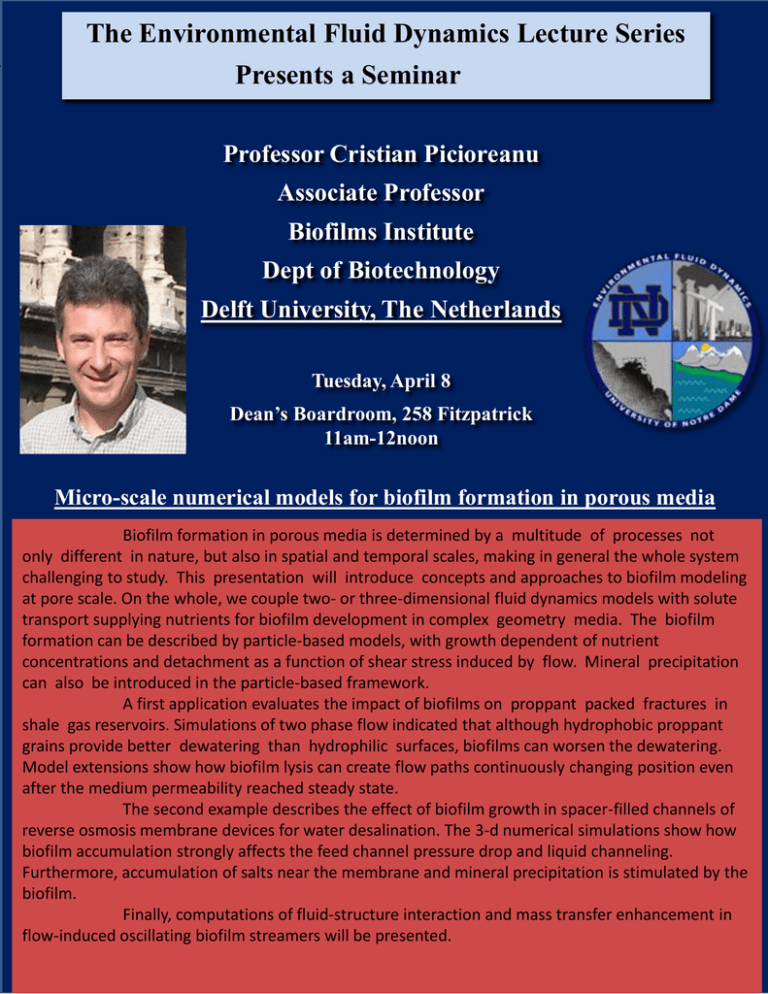
The Environmental Fluid Dynamics Lecture Series Presents a Seminar Professor Cristian Picioreanu Associate Professor Biofilms Institute Dept of Biotechnology Delft University, The Netherlands Tuesday, April 8 Dean’s Boardroom, 258 Fitzpatrick 11am-12noon Micro-scale numerical models for biofilm formation in porous media Biofilm formation in porous media is determined by a multitude of processes not only different in nature, but also in spatial and temporal scales, making in general the whole system challenging to study. This presentation will introduce concepts and approaches to biofilm modeling at pore scale. On the whole, we couple two- or three-dimensional fluid dynamics models with solute transport supplying nutrients for biofilm development in complex geometry media. The biofilm formation can be described by particle-based models, with growth dependent of nutrient concentrations and detachment as a function of shear stress induced by flow. Mineral precipitation can also be introduced in the particle-based framework. A first application evaluates the impact of biofilms on proppant packed fractures in shale gas reservoirs. Simulations of two phase flow indicated that although hydrophobic proppant grains provide better dewatering than hydrophilic surfaces, biofilms can worsen the dewatering. Model extensions show how biofilm lysis can create flow paths continuously changing position even after the medium permeability reached steady state. The second example describes the effect of biofilm growth in spacer-filled channels of reverse osmosis membrane devices for water desalination. The 3-d numerical simulations show how biofilm accumulation strongly affects the feed channel pressure drop and liquid channeling. Furthermore, accumulation of salts near the membrane and mineral precipitation is stimulated by the biofilm. Finally, computations of fluid-structure interaction and mass transfer enhancement in flow-induced oscillating biofilm streamers will be presented.
